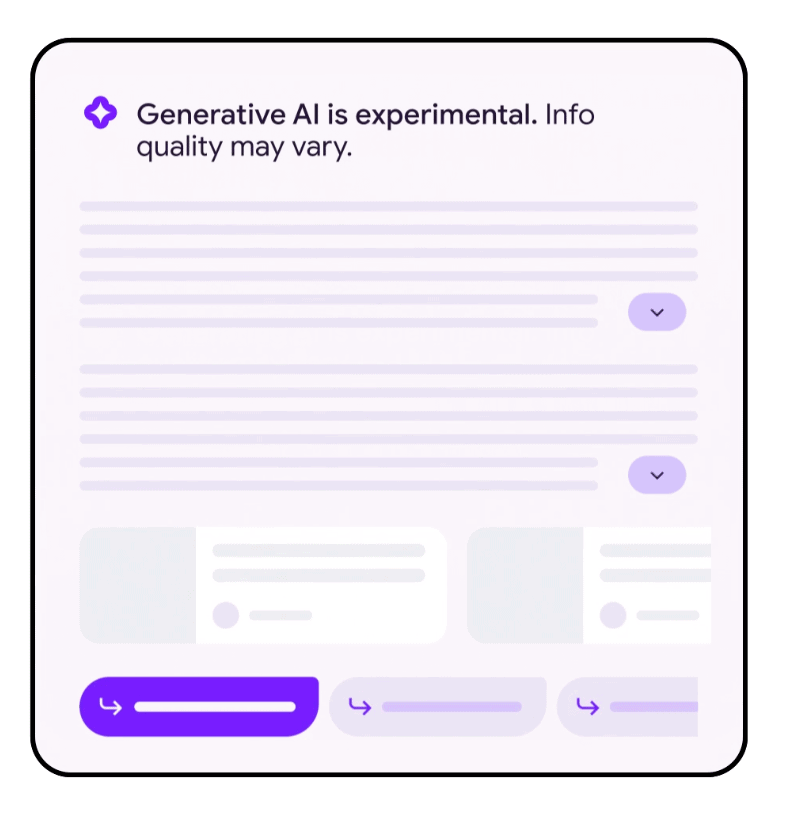Google is experimenting with AI search. This week Search Generative Experience (SGE) was made available through Search Labs in India and Japan, the first countries allowed to use it besides the US. From now on, it will also tell where it gets information from, something competitor Bing Chat from Microsoft has been doing for a while.
Google’s own research indicates that users use SGE for particularly complex searches. Instead of single search terms, the generative AI tool can accept conventional queries as input and (ideally) provide those with a concrete answer. However, this has so far lacked source citation with SGE, whereas Bing Chat has been working with footnotes within search results for some time.
Tip: AI search assistant Bing Chat now also included in Microsoft Launcher
The testing phase so far has shown that users want to see source citations within the search result. From now on, icons and thumbnails will be seen in the U.S. version of SGE that link to the relevant web page.
 Source: Google
Source: Google
AI search as a starting point
Google explains that younger users (18-24 years old) seem to be especially enthusiastic about AI search. The ability to continue querying based on previous searches is particularly popular. Interestingly, people see the effectiveness of advertising increasing: personalized ads above and below the AI search result are said to be helpful.
Incidentally, Google continues to characterize the AI search engine as an experiment. Just as Google Bard was not introduced with too much fanfare, the tech giant’s AI chatbots should only be an impetus: AI search acts as a starting point, just as Bard would be primarily for inspiration. The company is said to be working on a chatbot that can perform 21 useful tasks, such as helping with daily scheduling and other advice. For now, that’s off-limits to chatbots like ChatGPT and Bard: these variants are programmed to emphasize as much as possible that could be wrong.
Also read: Google puts a planner, teacher and life coach in one chatbot


